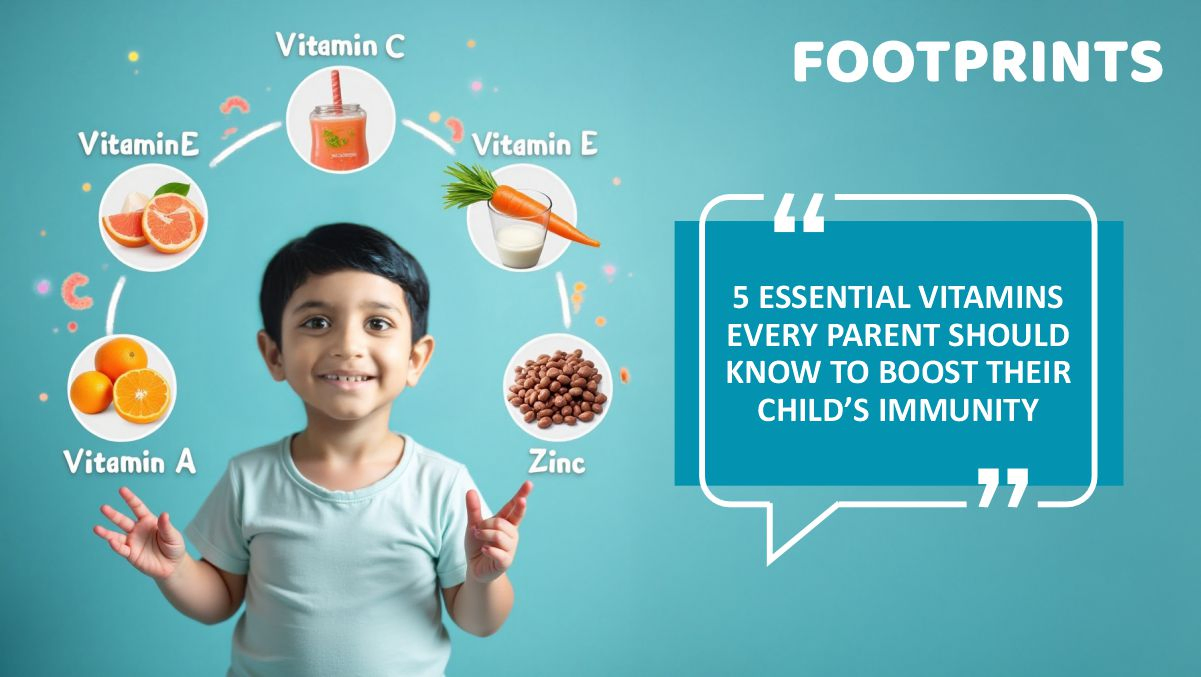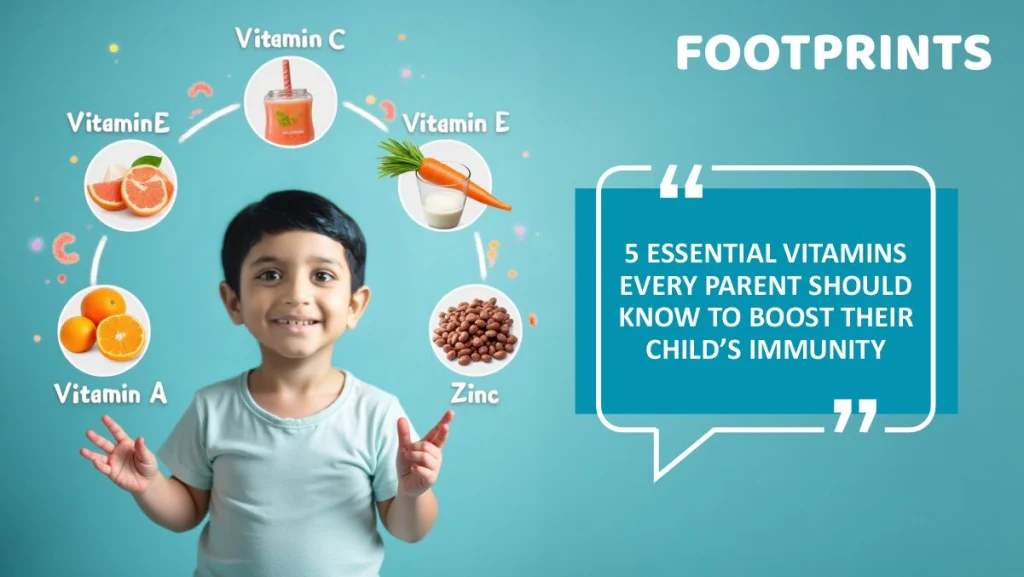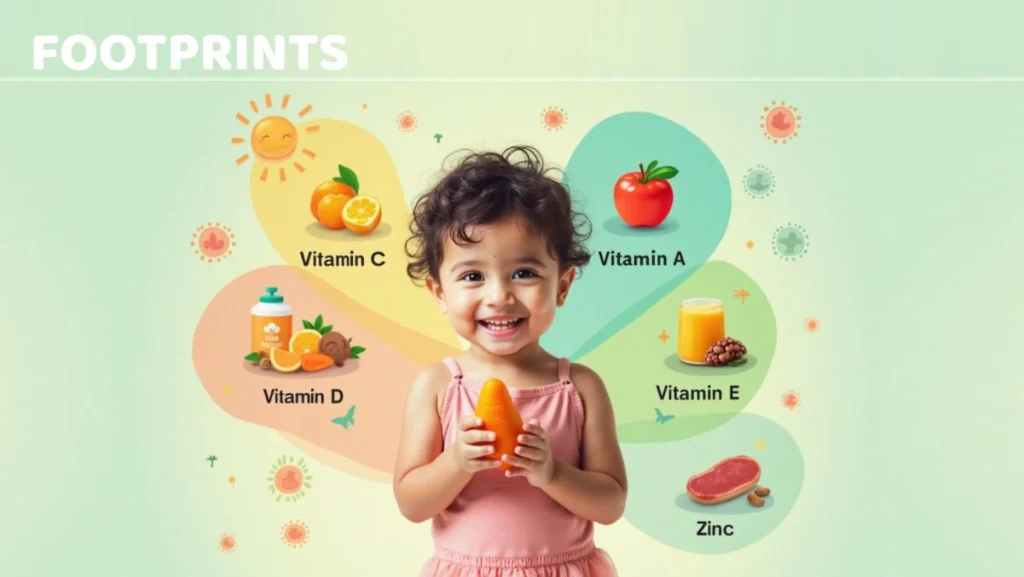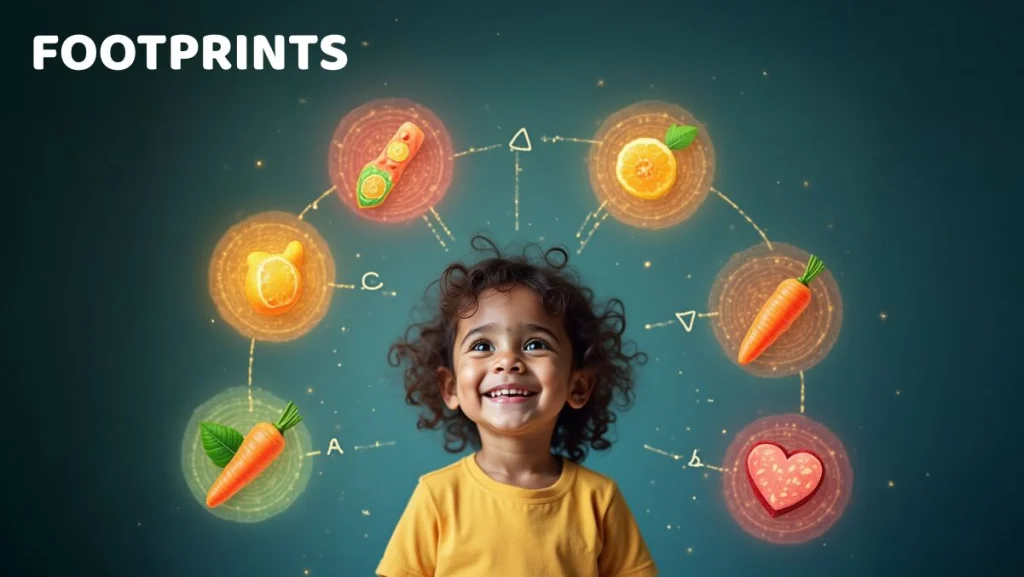

One of the biggest challenges parents face in today’s world is how to increase the immunity of their children. If you are worried that your child often catches the cold or flu or that the child is low on energy, the answer lies in ensuring that their diet includes essential vitamins and minerals that can help the immune system fight off illnesses. Read on to know of effective ways to boost immunity naturally.
Nutrients that boost immunity naturally
Eating a vitamin-rich diet goes a long way in strengthening children’s immune systems. It stands to reason that this diet needs to be a part of their lifestyle for it to show long-term benefits. Let us look at which are these important vitamins and minerals boost immunity, and importantly, the foods that help boost immunity.
Vitamin C
The first and foremost in line has to be Vitamin C. It is a great immune booster and crucial for several bodily functions. What does it do to children’s bodies?
- Boosts Immunity:
Vitamin C supports the immune system, helping children fight off illnesses and infections. - Supports Growth and Development:
It’s essential for collagen synthesis, which is vital for building healthy bones, teeth, and connective tissues. - Promotes Wound Healing:
Vitamin C aids in the healing of wounds and cuts, helping to maintain healthy skin and gums. - Enhances Iron Absorption:
It helps the body absorb iron from food, which is important for preventing anemia and supporting red blood cell production. - Acts as an Antioxidant:
Vitamin C protects cells from damage caused by free radicals, reducing the risk of chronic diseases. - May Reduce Cold Duration:
Some studies suggest that Vitamin C may help shorten the duration of colds and flu.
Deficiency
Vitamin C deficiency in children can lead to serious health issues, including scurvy, a condition that causes fatigue, joint pain, gum disease, and skin bleeding. Vitamin C deficiency can also result in slow-healing wounds, dry skin, and weakened immunity.
Vitamin C-rich foods to boost immunity naturally
Most of us are aware that citrus fruits are a rich source of Vitamin C. However, there are several other rich sources of Vitamin C as well. These include:
- Red bell peppers
- Kiwi
- Green bell peppers.
- Broccoli.
- Strawberries.
Vitamin B6
Vitamin B6 is a powerhouse nutrient for children’s growth and development. It plays a crucial role in boosting the immune system, brain function, helping with neurotransmitter activity, cognitive development, supporting metabolism, and mood regulation.
For infants and young children, adequate Vitamin B6 intake is also essential for proper nervous system development and healthy bone formation. Vitamin B6 is needed to create hemoglobin, a protein in red blood cells that carries oxygen to tissues throughout the body.
Deficiency
A deficiency of vitamin B6 can lead to anemia, a condition where the body doesn’t have enough red blood cells to carry oxygen.
Foods full of vitamin B6
Vitamin B6-rich foods include the following:
- Chickpeas
- Fish
- Chicken
- Potatoes.
- Bananas.
- Cottage cheese.

Vitamin E
Vitamin E is an essential nutrient for children, playing a vital role in their growth and overall health. It acts as a powerful antioxidant, protecting cells from damage and supporting immune function.
The key benefits of Vitamin E for children include:
- Boosting Immunity: Helps children fight infections and diseases.
- Aiding Cognitive Development: Enhances brain function and memory retention.
- Improving Muscle Health: Reduces oxidative stress in muscles and aids recovery after physical activity.
Deficiency
Children with low Vitamin E levels are prone to infections. Besides, its deficiency can also lead to muscle weakness and coordination issues, as well as problems with vision.
Sources of Vitamin E
- Nuts
- Seeds
- Spinach
- Broccoli
- Mango
- Tomatoes
Zinc
Zinc is a powerhouse mineral for children’s growth and development. It plays a crucial role in immune function, brain development, and cell growth. Here’s why it’s essential:
- Boosts Immunity: Zinc helps fight infections and supports wound healing.
- Supports Growth: It aids in cell division and tissue repair, ensuring proper physical development.
- Enhances Brain Function: Zinc is vital for cognitive development and memory retention.
- Improves Attention & Learning: Studies suggest zinc deficiency may be linked to attention-related issues.
Deficiency
A deficiency of Zinc can lead to stunted growth, weakened immunity, and cognitive challenges
Foods rich in zinc
- Meat
- Milk and dairy products
- Nuts
- Seeds
- Whole Grains
Selenium
Selenium is a vital trace element for children’s health, playing a crucial role in growth, neurodevelopment, and immunity. Here’s why it’s essential:
- Boosts Immunity: Selenium helps regulate immune responses and protects against infections.
- Supports Brain Development: It plays a role in cognitive function and neurological health.
- Aids Thyroid Function: Selenium is necessary for thyroid hormone metabolism, which influences growth and energy levels.
- Protects Against Oxidative Stress: As an antioxidant, selenium helps prevent cell damage and supports overall health.
- Promotes Healthy Bone Growth: It contributes to bone metabolism and development.
Deficiency
Deficiency can lead to weakened immunity, developmental delays, and increased susceptibility to chronic infections
Foods high in Selenium
- Nuts
- Eggs
- Dairy
- Sea food
- Whole Grains

Quick Tip
If you find looking up different sources of these important vitamins tedious, here is a quick, handy tip. Try to include as much colour as you can in your fruits and vegetables. Sure enough, you will be taking in most of the important nutrients. That children will be enticed by the many colours on their plate is an added perk!
There you go, with these healthy eating recommendations, you will make sure that the child remains healthy. For more such informative content, do keep watching this space. At Footprints, a chain of preschools across the country, we are committed to the holistic development of children.
FAQs
1. How can I ensure my child gets enough Vitamin C, B6, E, Zinc, and Selenium through diet?
Encourage a balanced diet that includes fresh fruits, vegetables, nuts, seeds, dairy, meats, and whole grains. Variety is key.
2. What are the signs of deficiency in these essential nutrients?
Deficiency symptoms vary, but common signs include frequent infections, fatigue, slow wound healing, poor concentration, muscle weakness, and dry skin. If you notice these signs, consult a pediatrician.
3. Can my child take immune-boosting supplements instead of getting them from food?
Whole foods are the best source. However, supplements may be necessary in some cases—always consult a doctor before introducing them.
4. Are there specific foods that provide multiple of these nutrients together?
Yes! Nuts, seeds, spinach, eggs, fish, and whole grains are rich sources of multiple essential nutrients.
5. How can I make nutrient-rich meals more appealing to picky eaters?
Try creative plating. Making food fun with different colors and textures can encourage children to eat healthier
Shubham is an SEO expert dedicated to helping businesses to thrive in a digital landscape. His innovative marketing campaigns have significantly boosted the organization’s reach and engagement.

